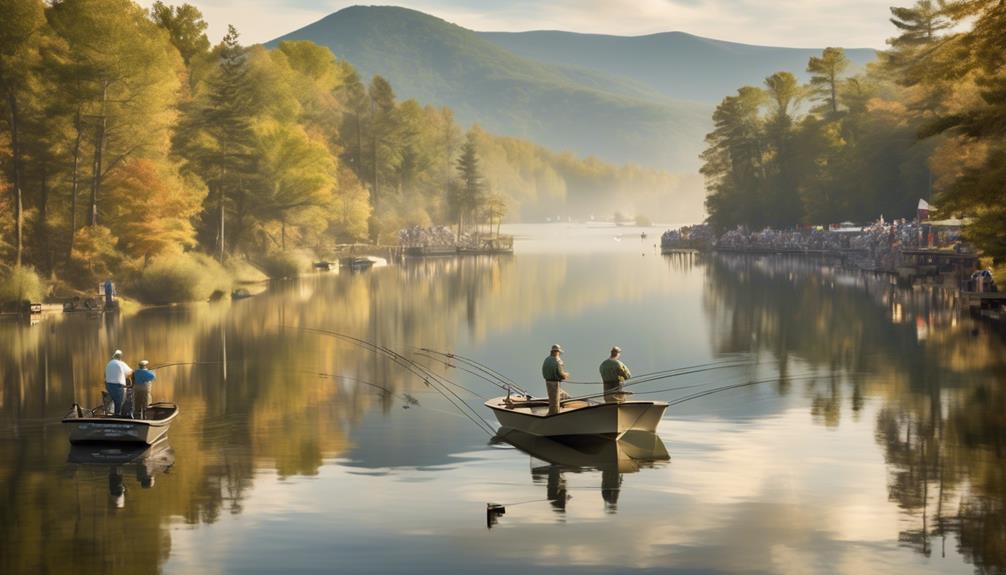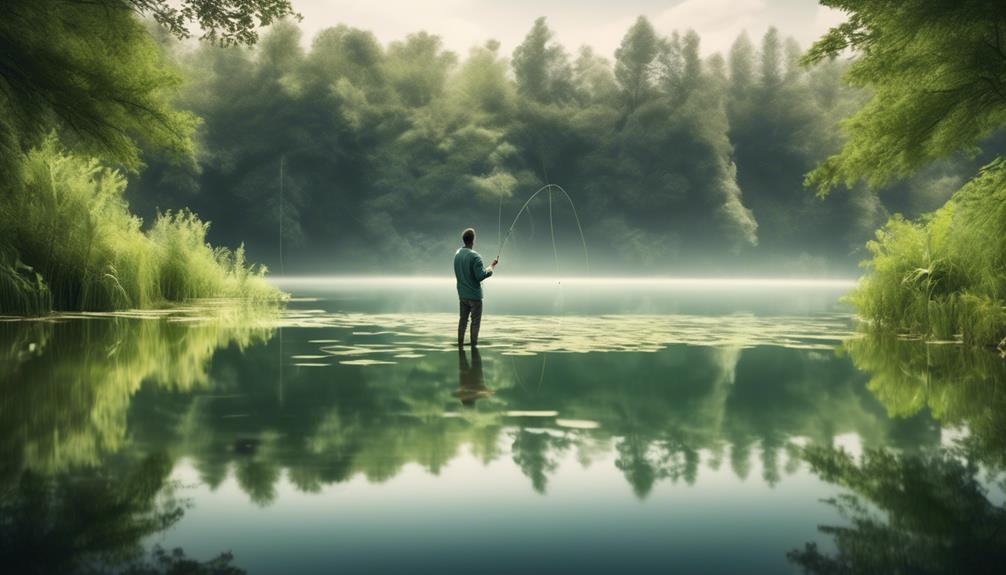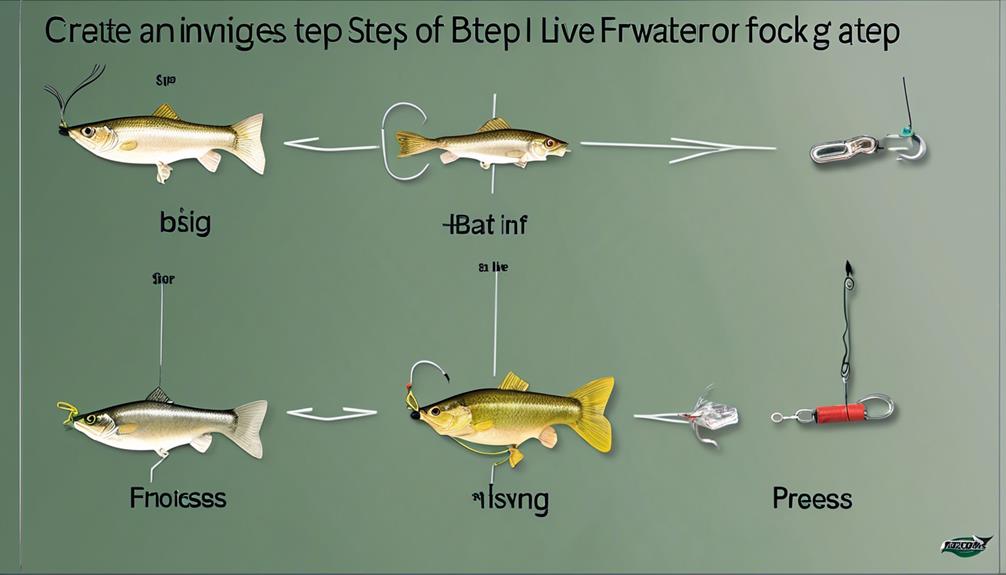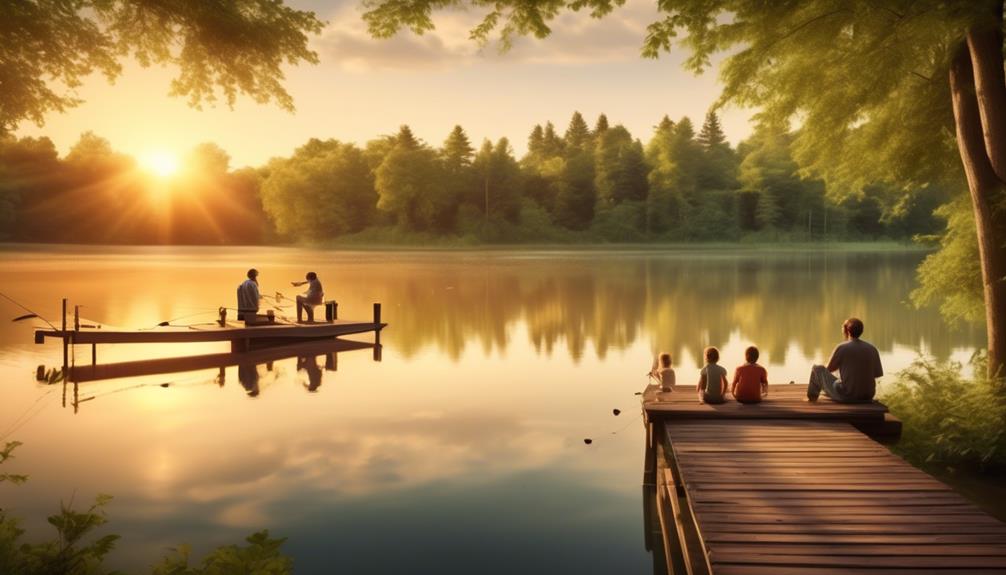If you're one of the millions of anglers who participate in freshwater fishing tournaments each year, you'll be interested to know that these events contribute over $45 billion to the U.S. economy annually.
Whether you're a seasoned competitor or a newcomer to the tournament scene, there are key strategies that can significantly improve your chances of success.
From understanding local fish behavior to fine-tuning your casting and reeling techniques, mastering these essential tips can make all the difference when it comes to landing that prize-winning catch.
Research Local Tournament Regulations
Before participating in any freshwater fishing tournaments, it's essential to thoroughly research the local tournament regulations to ensure compliance with all rules and guidelines. Know the limitations set on the size and number of fish that can be caught and retained. Each tournament may have specific rules regarding the type and size of fish that can be caught, as well as the maximum number of fish that can be weighed in. Understanding these limitations is crucial to avoid penalties or disqualification.
Follow the guidelines for equipment and bait usage. Some tournaments may have restrictions on the type of equipment and bait that can be used. It's important to familiarize yourself with these guidelines to ensure that you're using approved fishing gear and bait. This may include regulations on the use of live bait, artificial lures, or specific fishing techniques.
Additionally, be aware of any specific rules related to boat and motor usage. Some tournaments may have restrictions on the size and type of boats allowed, as well as the use of particular motor types. Understanding and adhering to these regulations is vital to ensure fair competition and avoid any unnecessary penalties.
Choose the Right Fishing Gear
To ensure a successful fishing tournament experience, selecting the right fishing gear is crucial for enhancing your performance and increasing your chances of a good catch. When it comes to rod selection, consider the type of fish you'll be targeting and the specific fishing techniques you plan to use. Different rods are designed for different purposes, so choosing the right one can make a significant difference in your performance.
Additionally, ensure that your reel is well-maintained. Regularly clean and lubricate the reel to keep it functioning smoothly, as any malfunctions could cost you a catch during the tournament.
Tackle organization is another key aspect of choosing the right fishing gear. A well-organized tackle box can save you valuable time during the tournament. Make sure your tackle box is stocked with a variety of lures, hooks, weights, and other essentials, and organize them in a way that allows for easy access. This can prevent fumbling around for the right gear when you need it most.
Furthermore, line testing is essential prior to the tournament. Check your fishing line for any signs of wear and tear, and replace it if necessary. A weak or frayed line can result in lost fish, which is the last thing you want during a tournament.
Scout the Tournament Location
When scouting the tournament location, thoroughly examine the water body for potential fishing spots and areas with high fish activity. Start by considering the location's accessibility and nearby amenities. Look for a fishing spot that isn't only rich in fish but is also easily accessible from the tournament site. Additionally, scout for local hotspots where fish are known to gather in abundance.
Once you arrive at the tournament location, take the time to explore the surrounding area to identify the potential fishing spots. Keep an eye out for signs of fish activity such as feeding frenzy, jumping fish, or visible schools of fish. Additionally, talk to local anglers or tournament organizers to gather information about the best fishing spots in the area. They may provide valuable insights into the local hotspots and areas where fish are commonly found.
Lastly, consider the nearby amenities that could enhance your tournament experience. Look for access to clean restrooms, convenient parking, and any nearby shops where you can purchase last-minute supplies. It's essential to have easy access to these amenities to ensure a comfortable and convenient fishing tournament experience.
Understand Local Fish Behavior
After scouting the tournament location and identifying potential fishing spots, understanding local fish behavior becomes crucial for increasing your chances of a successful catch.
Local fish behavior can vary depending on factors such as water temperature, time of day, and available food sources. Observing the movement and feeding patterns of the fish in the area will give you valuable insights into how to adapt your fishing techniques for maximum effectiveness.
Different species of fish have distinct behaviors and preferences. For example, largemouth bass tend to be more active during low light conditions, so early morning or late afternoon may be the best times to target them. Understanding the feeding habits of the local fish is essential for choosing the right bait and lures. If the fish are actively feeding near the surface, topwater lures could be the most effective. On the other hand, if they're staying close to the bottom, using sinking lures or live bait might yield better results.
Moreover, paying attention to the water currents and structures such as submerged logs, rocks, or vegetation can help you anticipate where the fish are likely to gather. By understanding local fish behavior, you can tailor your fishing techniques to match their habits, increasing your chances of a successful catch during the tournament.
Prepare Your Bait and Lures
Gather a variety of bait and lures to ensure you're prepared for different fishing conditions and target species. When it comes to bait selection, consider using live bait such as worms, minnows, or insects for a more natural presentation. Additionally, having a selection of artificial lures like crankbaits, spinnerbaits, and soft plastics can help cover a range of fishing scenarios. As you prepare your lures, also pay attention to lure variety. Different lures mimic different prey, so having a mix of options can increase your chances of enticing the fish to bite.
To make the most of your bait and lures, focus on casting accuracy and reeling speed. Accuracy is key when targeting specific areas where fish are likely to be, such as near vegetation or underwater structures. Practice your casting technique to ensure you can place your bait or lure precisely where you want it. Once your bait or lure is in the water, vary your reeling speed to find the optimal presentation for the conditions and the behavior of the fish. Some fish may be more attracted to a faster retrieval, while others may prefer a slower, more subtle approach.
Familiarize Yourself With Tournament Rules
Make sure to thoroughly familiarize yourself with the rules of the fishing tournament before you participate. Understanding fishing etiquette and tournament etiquette is crucial for a successful and enjoyable tournament experience. Familiarize yourself with the specific rules and regulations set by the tournament organizers. Different tournaments may have varying rules regarding bait, lure types, catch limits, and fishing methods. Being aware of these rules will help you avoid any unintentional violations and potential penalties.
Rule enforcement is a fundamental aspect of any fishing tournament. Tournament organizers typically have a clear system in place for enforcing rules and regulations. It's important to understand how these rules will be enforced and what the penalty system entails. Familiarize yourself with the consequences of rule violations, including potential point deductions, disqualification, or fines. By knowing the penalty system, you can ensure that your actions comply with the tournament rules, ultimately contributing to fair play and sportsmanship.
In addition to rule enforcement, understanding tournament etiquette is essential. This includes respecting other participants, maintaining proper conduct on the water, and adhering to any specific guidelines outlined by the tournament organizers. By familiarizing yourself with tournament rules, enforcement procedures, and etiquette, you can participate with confidence, knowing that you're contributing to a fair and enjoyable fishing tournament experience for all involved.
Practice Casting and Reeling Techniques
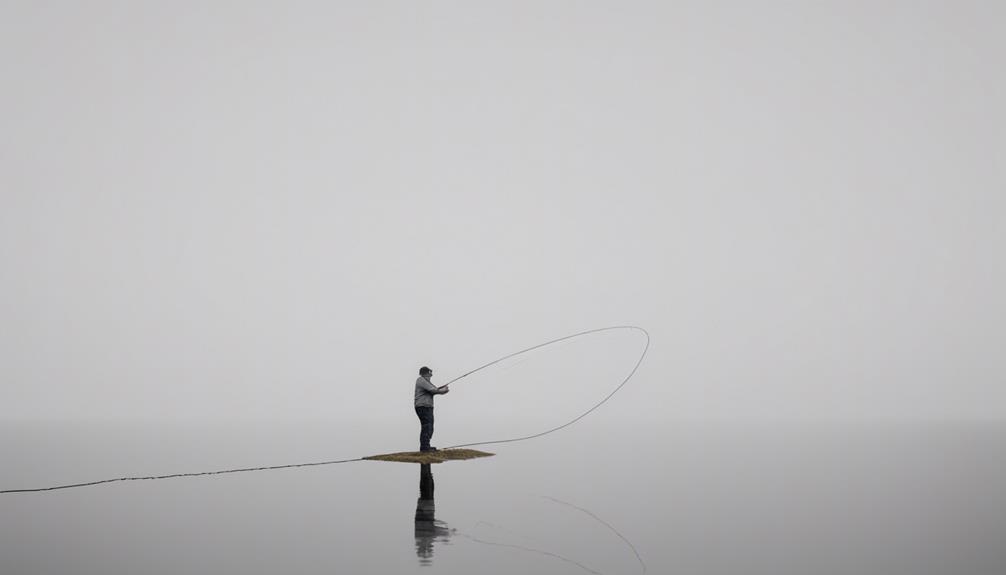
To improve your freshwater fishing tournament performance, hone your casting and reeling techniques through dedicated practice sessions. Mastering these skills won't only improve your accuracy but also increase your casting distance, giving you an edge over the competition.
- Focus on Technique: Pay close attention to your casting technique. Practice smooth, fluid motions to improve accuracy and reduce the chances of tangling or backlash. Keep your movements controlled and precise, aiming for a consistent and accurate delivery of your bait or lure.
- Work on Distance: Experiment with different casting styles to increase your casting distance. Practice power casting to cover more water efficiently, especially when targeting distant spots where the fish might be hiding. Adjust your reel's settings and fine-tune your technique to maximize the distance of your casts.
- Reel with Efficiency: Efficient reeling is crucial for landing your catch. Practice reeling in smoothly and steadily, maintaining tension on the line to prevent the fish from shaking the hook. Learn to adjust the pressure on the reel as the fish fights, keeping the line taut but not too tight.
Dedicated practice in these areas will enhance your overall performance in freshwater fishing tournaments. By improving your accuracy and increasing your casting distance, you'll be better equipped to reach and entice the fish, ultimately maximizing your chances of success during the tournament.
Pack Essential Supplies and Safety Gear
Before embarking on your freshwater fishing tournament, ensure that you have packed essential supplies and safety gear to guarantee a successful and secure angling experience. When it comes to emergency preparedness, having a well-stocked first aid kit is crucial. Make sure it includes items such as bandages, antiseptic wipes, pain relievers, and any personal medications you may need. Additionally, it's important to have a basic understanding of first aid techniques, especially for treating common fishing-related injuries like hook wounds and cuts.
In terms of navigation skills, being able to read a map and understand basic navigation principles can be a lifesaver. Even if you're familiar with the area where the tournament is being held, unexpected situations can arise. Having a map of the water body and surrounding areas, along with a compass or GPS device, can help you find your way in case you get disoriented or encounter unfavorable weather conditions. Familiarize yourself with the map before the tournament, noting important landmarks and potential hazards.
When it comes to safety gear, always remember to pack personal flotation devices (PFDs) for everyone on board, as well as a throwable flotation device. A sound-producing device, such as a whistle, is also essential for signaling for help in case of an emergency. Lastly, consider packing a small waterproof flashlight and extra batteries for visibility during low-light conditions.
Frequently Asked Questions
How Can I Find a Fishing Tournament Near Me?
To find a fishing tournament near you, start by checking local organizations and fishing clubs. They often host or have information about upcoming events. You can also search online for fishing tournament locations in your area.
What Are Some Common Mistakes to Avoid During a Freshwater Fishing Tournament?
To avoid distractions during a freshwater fishing tournament, make sure to focus on your technique and stay attentive to the surroundings. Proper equipment maintenance is vital to prevent any unexpected breakdowns that could ruin your chances of success.
Are There Any Specific Strategies for Fishing in a Tournament Versus Recreational Fishing?
When fishing in a tournament, it's crucial to have specific strategies. Adopt a competitive mindset, focus on locating high-yield spots, and adapt to changing conditions. Different from recreational fishing, tournaments require a more targeted and competitive approach.
What Are Some Tips for Staying Focused and Maintaining a Positive Attitude During a Tournament?
To stay focused during a tournament, maintain concentration by setting small goals, taking breaks, and avoiding distractions. Keep a positive mindset by visualizing success, staying calm under pressure, and reminding yourself of past achievements.
How Can I Best Support Conservation Efforts While Participating in a Fishing Tournament?
To best support conservation efforts while participating in a fishing tournament, you can promote sustainable practices like catch and release, minimize environmental impact by using biodegradable gear, and practice responsible angling to preserve the local ecosystem.
Conclusion
Now that you have these essential tips for nearby freshwater fishing tournaments, you're ready to hit the water and reel in some big catches.
Remember to do your research, pack the right gear, and follow tournament rules for a successful and enjoyable experience.
With preparation and practice, you'll be ready to compete and have a great time out on the water.
Good luck and tight lines!
